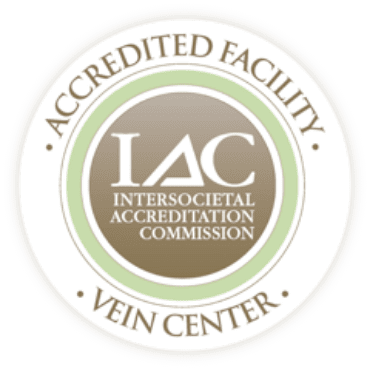If you have an ulcer on your leg which has not healed for more than 3 months despite a variety of wound care regimens, it might be time to consider a thorough venous evaluation. On a number of recent occasions I have encountered patients of varying ages who presented with the chief complaint of non-healing wounds and this reminded me of the importance of educating the public about the relationship between non healing wounds and venous insufficiency in regard to wound care Fort Myers treatment. The most impressive case was that of a 50 year old woman who had suffered 10 years with a large wound on the right leg. Skin grafts had failed on 2 different occasions and she was eventually referred for venous evaluation. She did not have very noticeable varicose veins in the affected leg and I suspect this was the reason venous insufficiency was not considered earlier. Ultrasound evaluation was performed and confirmed severe leakiness in the right leg directly feeding the ulcerated area. She underwent endovenous ablation (sealing) of the leaky vein (great saphenous vein) within one week of her original visit and she noted relief of the pain and pressure immediately after the procedure as I was helping her into her vehicle. Her ulcer is now on the path to healing.
Venous ulcers usually result from a trauma of some sort (bug bite, blister, skin biopsy), and once the skin barrier is violated the pressure of the underlying fluid accumulated as a result of leaky veins forces the defect in the skin to progressively open. Over the course of a few weeks ulcers may enlarge as the accumulation of fluid in the tissues causes more tension in the over-stretched skin. The swelling caused by venous insufficiency slows the healing of ulcers by impairing oxygen and nutrient transport to the ulcer bed. The two phases of wound healing are granulation and contraction and both are adversely affected by venous insufficiency. Granulation is the process where necrotic tissue (white or yellow in color) is replaced by healthy tissue (pink or red in color) and usually has to take place before the wound can start the second phase of wound healing, contraction (shrinking or closing in). When venous insufficiency is untreated, simple ulcers may take extended periods of time to heal and the longer wounds are left open, the greater the risk of blood-borne infections occurring. Unfortunately, patients and physicians may become complacent and “learn to live” with their open venous wounds rather than taking the initiative to fully investigate all potential underlying causes, including the most common cause of lower extremity ulcers, venous insufficiency. In 2012, 11 years since the introduction of endovenous ablation as the preferred treatment of venous insufficiency, there should be no lower extremity wound left uninvestigated for venous insufficiency. Since venous insufficiency affects 20% (40 Million) of the adult population in America, and endovenous ablation is still a relative “new” procedure, there are still many patients out there with untreated and undiagnosed venous insufficiency today who are suffering needlessly.
The role of the modern, educated and dedicated Vein Specialist is to educate both patients and physicians of all specialties regarding routine as well as the more obscure presentations of venous insufficiency. Equally as important as the training, skill and dedication of the Vein Specialist are the same three qualities of the Vascular Technologist. The most critical goal in the evaluation of patients with suspected Venous Insufficiency is the identification of the specific insufficient veins as well as the stratification of severity of the insufficiency. Many patients have more than one of the potential 5 superficial leg veins identified as insufficient and 5-10% of our patients have combined superficial and deep vein insufficiency. If one suspects they may have venous insufficiency, it is our recommendation to seek a comprehensive evaluation by a qualified Vein Specialist with a background in Vascular Surgery.
Call Or Request An Appointment
Contact us to schedule an appointment with our expert Vein Specialists team. We will evaluate your signs and symptoms, answer your questions, and create a personalized vein care treatment plan to relieve your leg pain and enhance your life.
Schedule Your Appointment TodayOur goal as Vein Specialists is not to simply find patients with leaky veins and seal them. We focus on cultivating interest in, and awareness of venous insufficiency in the general public as well as reaching out to and offering educational materials to physicians of all specialties. We are dedicated to defining venous insufficiency in as specific and individual terms as possible so that patients and physicians will be able to fully appreciate the full spectrum of this disease. Our website offers visual examples of the full spectrum of venous disease we treat in the Gallery section. Vein Specialists is 100% focused on evaluating patients with ultrasound, stratifying the severity of disease, correlating these findings with the patient’s clinical findings, and determining whether endovenous ablation or other procedures have a reasonable chance of improving their clinical condition. These conditions may be a bit more obscure than the garden variety varicose or spider veins and we encourage physicians and patients to include venous insufficiency in the differential diagnosis of swollen legs, non-healing ulcers, restless legs syndrome, nocturnal (nighttime) leg cramps, nocturnal urination, neuropathy, tarsal tunnel syndrome, volume overload, and other symptoms affecting the lower extremities.
Request an Appointment
Please take a moment and fill out your request below and one of our staff members will be in contact within 24-48 business hours. If this is an emergency, call 911 immediately. If this is a non-emergent concern, please call the office Monday-Friday between 8am – 5pm at: 239-694-8346

